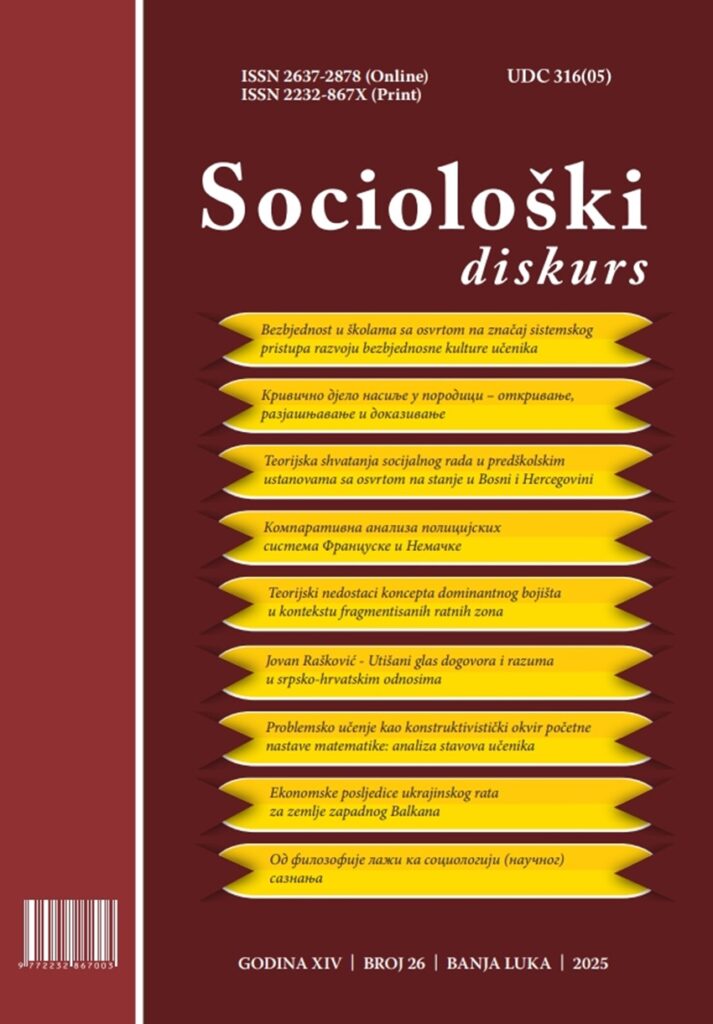ECONOMIC CONSEQUENCES OF THE UKRAINIAN WAR FOR WESTERN BALKAN COUNTRIES
DOI:
https://doi.org/10.7251/SOCEN2526145KAbstract
This paper explores the multidimensional economic consequences of the Russian-Ukrainian war on Western Balkan countries (Serbia, Bosnia and Herzegovina, Montenegro, North Macedonia, Albania, and Kosovo). Through analysis of available economic indicators, statistics, and relevant reports, it investigates how the conflict, which began in 2022, has changed economic flows, trade relations, energy policy, investment patterns, and economic development strategies in the region. Results show that Western Balkan countries have experienced significant disruptions in the energy sector, inflationary pressures, and changes in trade patterns. At the same time, the war has accelerated processes of energy diversification and integration with EU markets, creating new opportunities for economic repositioning. The paper points to different degrees of economic resilience among countries in the region, where states with more diversified economies and less dependence on Russian energy have shown greater stability. The conclusions suggest the need for further strengthening of regional economic cooperation, acceleration of EU integration, and development of strategies to increase economic resilience in the context of global geopolitical instabilities.
